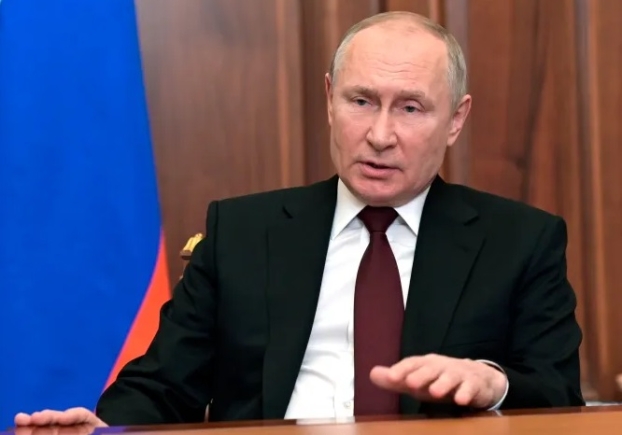
Russia’s stance on Black Sea blockade threatens food security
On July 17, Russia refused to renew the agreements allowing grain exports through the Black Sea.
With this unilateral decision, Russia chose to put an end to an initiative carried out with the United Nations (UN) and the support of the international community, an initiative that benefited the most vulnerable countries and enabled the World Food Programme (WFP) to feed thousands of people in need in Djibouti, Kenya, Ethiopia, Somalia, Sudan and Yemen.
It is the most vulnerable countries, those already bearing the brunt of the consequences of the war in Ukraine, that will pay the heaviest price following the abrupt termination of these agreements.
This halt is irresponsible, following a 2022 that was a terrible year for food security. According to the United Nations, 735 million people worldwide suffer from hunger, and one person in five on the continent of Africa.
Facts are indisputable
The end of the Black Sea Initiative will mean a significant reduction in the volume of grains reaching the people who need it most. In one year, the agreements had enabled 33 million tons of food commodities to reach 45 countries.
The donations announced by Russia, without any precise date and limited to a handful of countries and a few thousand tons, represent a tiny fraction of the humanitarian aid that was provided via the Black Sea by the WFP. This minimal, cosmetic gesture on the occasion of a summit fools nobody.
Russia’s abrupt cessation of the agreements will also lead to even greater volatility in grain prices. After the record high in March 2022 caused by the launch of the war of aggression against Ukraine, the Black Sea Initiative had enabled food prices to fall by almost a quarter.
We had hope that they would fall for the long term. Instead, prices remain very high. They rose the most yet on 19 July this year, and there is a risk that they will rise further in the medium term.
Who benefits from this rise? Russia and its agricultural sector, which wants to enrich itself at the expense of the most disadvantaged, and whose exports, despite what Moscow says, are not subject to any sanctions.
In fact, Russia is hoping to set a record. It is building up stocks and harvests in order to sell more, and at higher prices. The rest of the world will suffer from its decisions.
Actions also speak for themselves
Ukraine, a country at war, part of whose territory is illegally occupied and whose people are being bombarded every single day, managed to take action to support global food security. It launched the “Grain from Ukraine” humanitarian initiative to help the most vulnerable countries in Africa and Asia.
In contrast, Russia is deliberately bombing the ports of Odesa, Mykolaiv and Chormonorsk. It is destroying grain silos and firing at civilian ships. In so doing, it has openly violated international law.
In so doing, it is also driving up grain prices on the markets after each of its attacks.
In so doing, it is destroying and preventing the transit of reserves that were going to the World Food Programme, and, therefore, to the people who are suffering the most. What are its objectives if not to weaponise food?
In the face of Russia’s cynical weaponisation of food, France and its European partners have chosen the path of responsibility and international solidarity.
At the national level, France has mobilised over €840 million in food aid over the past year, including almost €250 million in emergency aid to help the worst-affected populations.
It contributes to the Solidarity Lanes set up by the European Union, which have enabled the export of more than 38 million tons of grain from Ukraine by road, rail and river. And while Russia has reduced its contribution to the WFP, France has stepped up its financial and material support to get grain and fertilisers to the countries that need them most.
France will continue its efforts, particularly in October in Paris during the Global Ministerial Meeting of the School Meals Coalition, which is working to ensure that children in developing countries are fed and can go to school, and during the next Nutrition for Growth Summit, which France will be hosting. Paris was also the venue of the Summit for a New Global Financing Pact, held on June 22 and 23, which generated new momentum for solidarity with developing countries in the face of poverty and climate change.
Turning hunger into a weapon of political coercion: that is how low Russia has sunk. Once again, as it has been doing constantly for the past year and a half, it is violating an elementary principle of common morality.
In response, France will work tirelessly, with its partners, to ensure that those who need food the most can eat as they should. We, at least, will remain true to our principles.
The writer is France’s Minister for Europe and Foreign Affairs.
